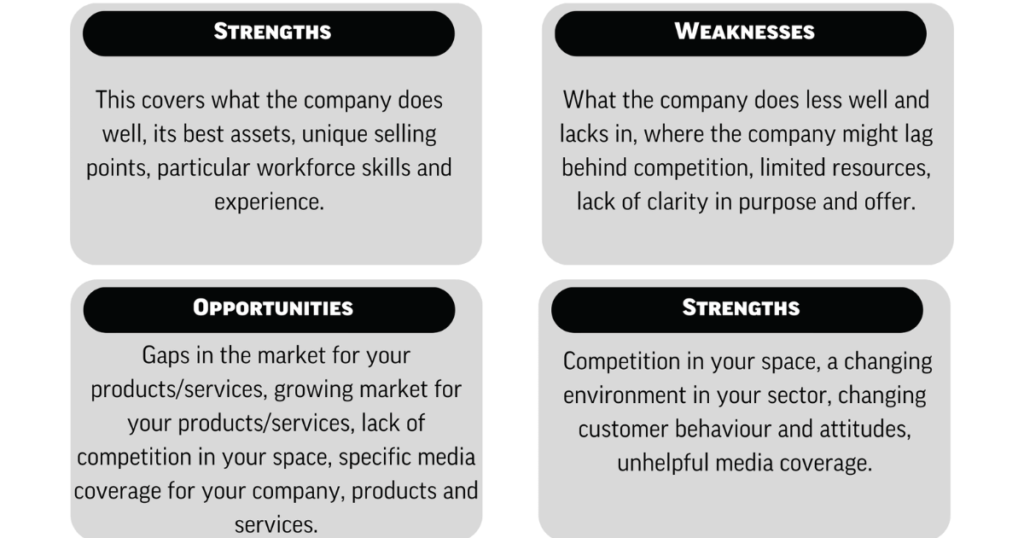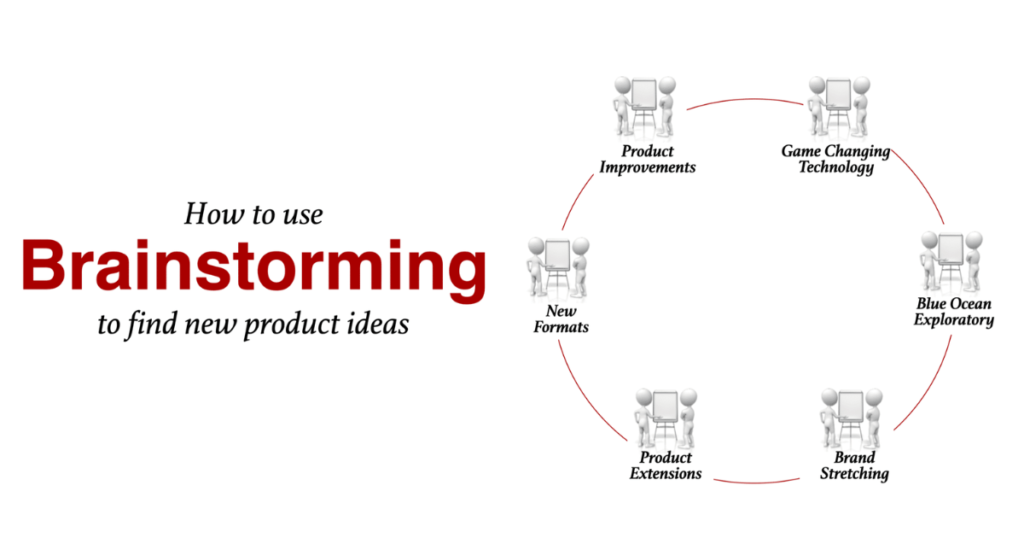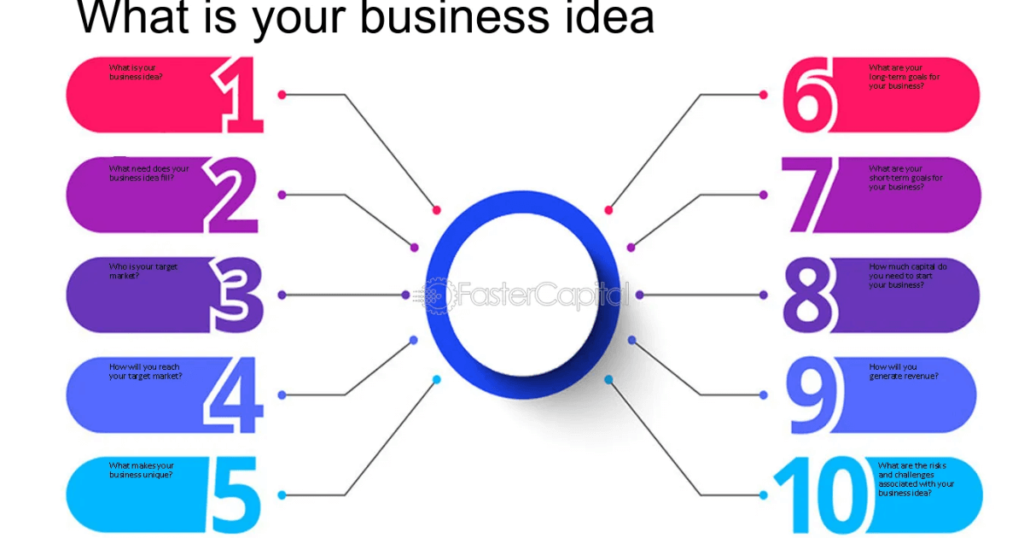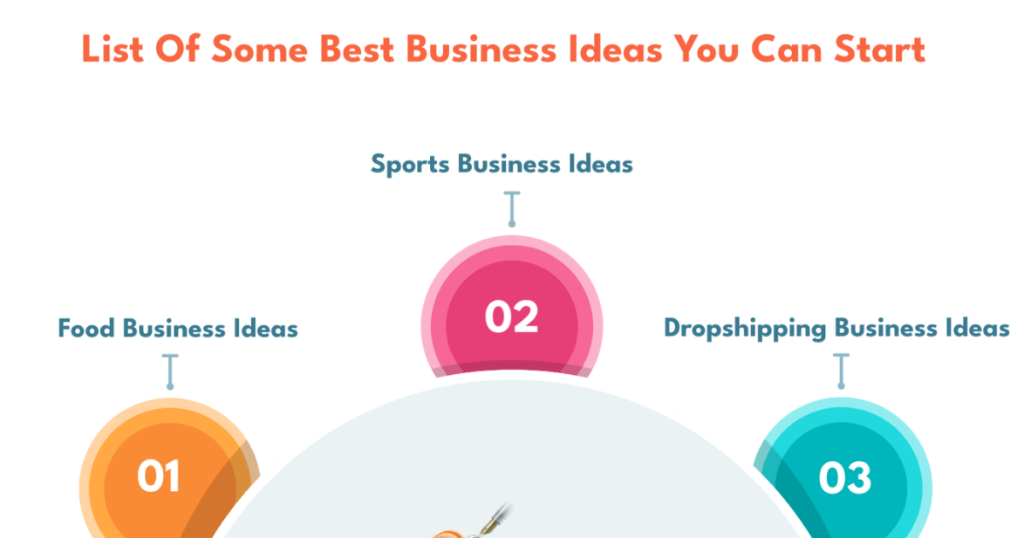Making a choice to start your own business is an exciting first step, but coming up with a viable business idea can be difficult, especially if you’re stuck. However, with some strategic thinking about your strengths and passions, as well as some brainstorming and testing of new ideas, you can identify a promising business concept even if you are initially stuck for ideas. Here are some suggestions to get you started:

Think About your Skills and Interests

The best business ideas often come from things you already enjoy and are skilled at. Consider your professional experience, education, hobbies, talents, and interests to identify strengths you can leverage. Previous food-related jobs, such as waiting tables, may pave the way for a culinary startup. Artistic hobbies may translate well into an Etsy creative business. Identifying these personal strengths yields far more promising ideas than attempting to objectively come up with what appears to be broadly marketable.
Understand Your Strengths and Weaknesses

On a similar but deeper level, closely examining your strengths and weaknesses can reveal ideal business opportunities. Outline which tasks and roles you excel at, and which you dislike or find difficult. Leaning into your natural strengths increases your chances of success and enjoyment while running your business. Can’t take accounting? Avoid ideas such as bookkeeping services. Do you enjoy connecting with people? Consider starting a network-based business. Knowing your abilities provides parameters for filtering concepts.
Begin with Purpose

Rather than randomly listing possible ideas, focus your brainstorming on the problem you want to solve or the people you want to help. This purpose inspires creativity and passion. You may want to consider questions such as “What issues have I faced that my business could help simplify?” as well as “What communities or demographics could benefit from this service?” This adds meaning to your entrepreneurial endeavors from the beginning.
Brainstorm new ideas

After you’ve considered your personal strengths and potential goals, put on your creative hat and brainstorm a variety of options across industries, product versus service businesses, and online versus brick-and-mortar models. In a preliminary brainstorm, no idea is too farfetched. List every business idea that comes to mind related to your skills and mission, from dog walking to space technology startups. Combine a broad market gap analysis with micro-opportunities that you’ve noticed are lacking locally. Bounce ideas off friends and family to broaden the pool.
Test your New Business Ideas

As promising ideas emerge, evaluate them to eliminate impractical options. Run surveys to determine whether anyone would buy or use your offering. Determine the logistics of required startup costs, operations, and regulatory issues. Analyze the current competition. Starting as lean as possible with the fewest viable products can help quickly validate or invalidate ideas. Examine your personal willingness to persevere in the face of adversity when starting your own business. By focusing on testing potential directions, you can identify smart bets that are likely to succeed.
Consume More
If you open yourself up to new people, places, and ideas, you will find inspiration everywhere. Read entrepreneur interviews and nonfiction business books to learn how others started successful businesses. Listen to business podcasts while you commute. Follow influencers from industries that interest you. Investigate small businesses in your neighborhood. Speaking with entrepreneurs can also generate new ideas. Absorb as many insights as possible; this flood of information fuels the ideation process.
Develop Your Idea into a Business

As potential ideas sprout, carefully evaluate each one: does it solve a real problem, fill an unmet need, or improve on existing options? Who is the target demographic? How big might the market be? These critical questions transform a fleeting thought into a viable idea. Create a basic business plan that outlines initial financial requirements, operations, and marketing. When an idea develops into a strategized business model on paper, you gain confidence that it will thrive in the real world.
Overcome Your Fear

Every entrepreneur feels some fear when starting a business with an unproven idea. Doubts arise: “What if no one wants this?” “Could I really compete in this industry?” “Am I capable of handling this workload?” The most important step is to get started before fear grows. Focus your energy on the first tangible steps, such as obtaining business financing, registering your company, developing a barebones MVP, or acquiring your first paying customer. Momentum instills confidence in yourself and your concept. Fear quickly turns into motivation as your business gains traction.
By consuming information, carefully developing ideas into models, and taking the first steps of faith, you can move from a concept to a successful business. Do not let a lack of ideas deter you from pursuing your entrepreneurial dreams. Instead, push forward strategically.
List of the Best Business Ideas You Can Start

Food Business Ideas

One of the most popular small business options for entrepreneurs is the food, beverage, and catering industry. Consider what types of cooking or baking you excel at, and then base your ideas around those skills. Launching a specialized baked goods e-commerce store with custom-decorated cakes and cookies allows for creativity.
Have family raved about a signature dish or cocktail recipe? Produce the sauce, spices, or spirits for sale. Offering private chef meal experiences also allows you to leverage your cooking skills for local client events. Running a food truck is also an attractive option for first-time business owners due to its flexible hours and lower startup costs.
Sports Business Ideas

Athletic instruction services are popular among those who enjoy sports. Bootcamp-style fitness classes are popular among a specific demographic. Becoming a personal trainer or spin cycle instructor also allows for flexible hours around existing work. Athletic gear and equipment are also lucrative retail niches that can be tapped into through sports merchandising or an ecommerce store.
There is also a high demand for kids sports lessons before and after school in everything from soccer to lacrosse if you have previous experience playing school sports or college intramurals.
Dropshipping Business Ideas

A dropshipping store is one of the easiest ecommerce models to start for new digital entrepreneurs. This allows you to create an online shop focused on products that interest you without actually stocking inventory. After customers have purchased the item, you order fulfillment directly from the wholesaler and receive a generous margin.
This concept is scalable due to the low upfront investment required beyond web hosting and marketing. You can tailor your inventory to specific niches where you see profit potential based on trends. From home goods to pet supplies, there are numerous options for creating your ideal dropshipping business.
Explore More Business Ideas
This is just a small sample of the many directions you can take your entrepreneurial journey as a beginner without a pre-determined business strategy. Almost any background, skill, life experience, or passion can be turned into a viable business idea. Spend time researching your neighborhood – does the community require another daycare center, auto shop, or laundromat? Keep an eye out for customer pain points and unmet needs, and then come up with solutions to fill the gaps. Join entrepreneur groups to gain inspiration from others on the journey. With an inquisitive mindset and a willingness to critically evaluate ideas, you’ll find the ideal concept soon!
FAQs
How do I start a business without an idea?
If you want to start a business but don’t have a clear idea, start by identifying problems/gaps in existing products or services that a new business could fill. Investigate thriving industries and consumer demand to match. You can also assess your own skills and interests to determine the best business types to leverage them, even if it means solving problems you’ve encountered yourself. Create a list of possibilities, then validate demand and feasibility using surveys, competitor analysis, business plans, and so on. Evaluating your options in depth can result in a winning concept.
What is the easiest business to start?
Some of the most accessible and low-cost businesses for beginners to start include freelancing/consulting services in your field, ecommerce businesses through online marketplaces, affiliate marketing, handyman services, house cleaning, food trucks/catering, pet sitting or dog walking, virtual assistant services, and dropshipping. These allow for a quick start with little to no inventory, require minimal specialized qualifications, and have the potential to scale over time.
How do I start a business if I’m not sure what to do?
The critical first step is to narrow down to a well-defined niche and business model that is best suited to you rather than tackling the vast universe of unknown options. Begin by thoroughly reflecting on your own interests/passions, prior work experience, knowledge base, skill sets, and talents to guide appropriate directions. Frequent brainstorming sessions in which every single business idea is written down without self-judgment can lead to the emergence of the right concept. Seeking advice from entrepreneurial friends or mentors in promising industries is also beneficial. Once you’ve decided on “your” idea, detailed market research and business planning will determine what to do next.
How does a beginner start a business?
As a new entrepreneur, the most important first step is to keep your initial business idea small, localized, and manageable to test. Begin transforming your concept into reality gradually: register your company/business name, open a business bank account and set up accounting/bookkeeping systems, create a website/social media presence, create brochures, obtain necessary permits and insurance, and so on. Learn your target market’s needs from the ground up, network constantly, identify cost-effective operations and pricing, master online marketing, and provide exceptional customer service through one-on-one relationships to establish yourself as a dedicated industry newcomer. Be flexible in adapting to lessons learned, and your business fundamentals will soon solidify into confidence.
Conclusion
Beginning entrepreneurs should not be discouraged because they lack a concrete business idea. Knowing your strengths, understanding local consumer needs, and relentlessly brainstorming and testing concepts allows new ideas to take root. When starting your business, keep an open mind and a strong sense of purpose. The perfect idea will emerge through research and self-discovery. Beginning this rewarding entrepreneurial journey with no preconceived limitations can help you realize your full creative potential.

